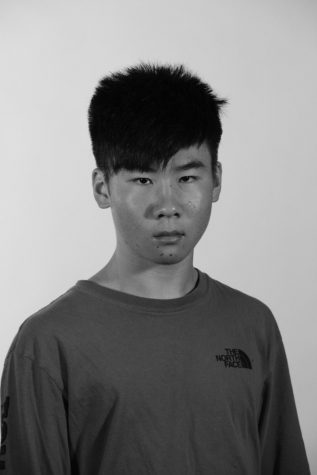Protests Must Continue: A Look at Hong Kong During a Pandemic
June 17, 2020
The dangers that an organized protest carries during this time are clear. Aside from the vast number of people in attendance, common activities at protests include chanting and yelling, or coughing and sneezing when in contact with pepper spray. All of these aspects threaten to spread COVID-19, which is why a ban on assembly, more so large gatherings, seems justifiable at first. However, current relations between China and Hong Kong paint a different picture. Under the guise of public health concern, the Chinese government has positioned itself to further erode Hong Kong’s democratic freedoms with frightening swiftness and conviction. Now, restrictions on gatherings that are intended to slow the spread of the coronavirus are weapons used to silence and downplay Hong Kong’s democracy movement. Actions such as the arrest of 15 prominent pro-democracy leaders on May 11th would have prompted massive protests, but with gatherings prohibited and organizers quickly detained, Hong Kong’s freedom movement has all but come to a halt. In the United States, recent nationwide demonstrations over the murder of George Floyd at the hands of the Minneapolis Police Department show that protests occur when immediate justice is required in a system that hasn’t delivered. Both America’s racial justice movements and Hong Kong’s fall show why freedom of demonstration will not and must not stop during a pandemic.
China has gone to great lengths to dispel the preconception that the country’s failures regarding COVID-19 demonstrate the flaws of authoritarianism. Instead, shortcomings that can be easily blamed on executive negligence are used as fuel for the anti-democracy propaganda deployed in Hong Kong. Although the United States has historically been critical of the Chinese President Xi Jinping’s campaign against protests in Hong Kong, actions from President Trump regarding recent domestic protests reveal that the two have more in common than meets the eye. The similarities in how both protests were and are currently handled further emphasize why the right to assemble is more important now than ever.
In an effort to contain the spread of COVID-19, governments have allocated power to centralized, state entities. This move to create leadership during what is an unprecedented situation has overshadowed the basic tenet of consent of the governed, that authority is only legitimate if citizens recognize its benefit. For President Trump and Xi, the idea that their leadership is under question is a dangerous precedent, which is why both, despite their differences, are working hard to quell the notion. President Xi has denied that arrests are for political reasons. Crackdowns on opposition have taken the form of sweeping arrests. Trump has also gone to extreme lengths to assert his authority, threatening insurrection with military intervention. For residents of Hong Kong, consent to China and the authority it carries means trust in its judicial system and form of government. Through observation this system has failed to uphold democratic rights that were promised by the colonial British. For Americans, consent means trust in authority figures’ competence and knowledge, and that those who wield authority, in this case the police, are expected to uphold the same trust.
Both the residents of Hong Kong and the United States share the same concerns that those in power are not there to help, and the current leaders from both countries seek to dispel these concerns without addressing them directly. What may be the dagger in Hong Kong’s struggle for autonomy is a lesson that Americans must learn from. Military intervention during protests is a blatant attempt at weakening a movement. The movement in Hong Kong was silenced overnight, do not let America have the same fate.








